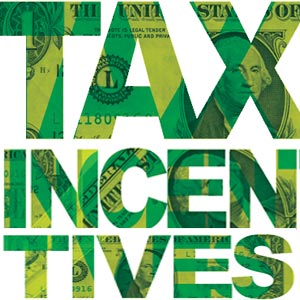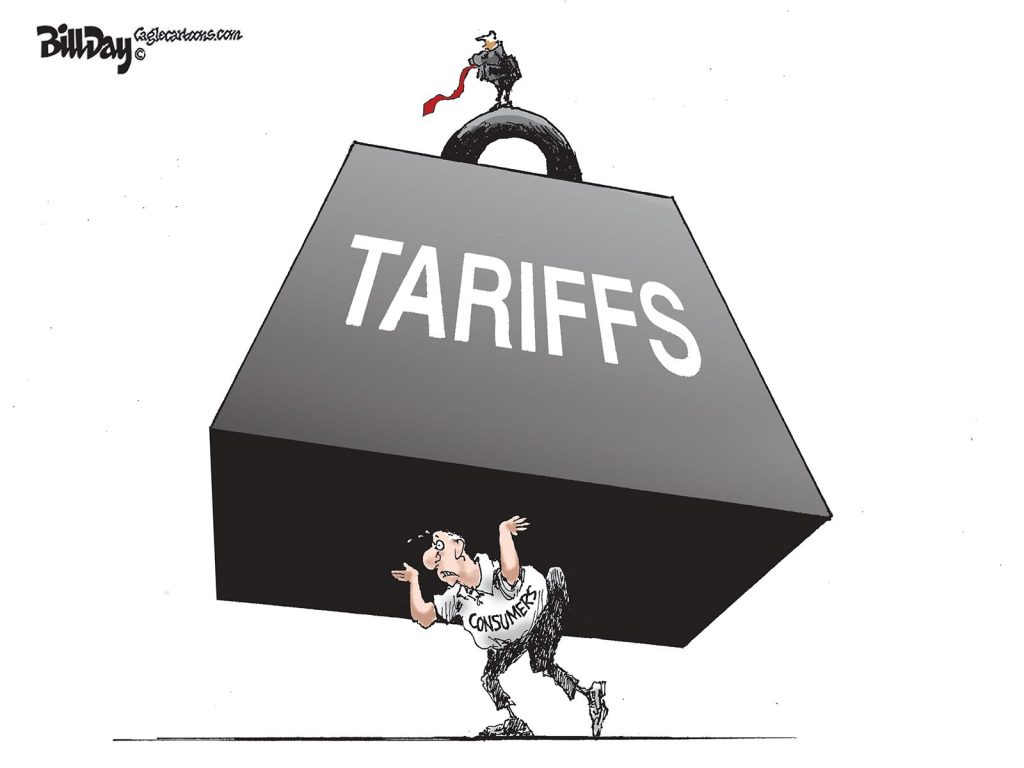It’s impossible for us to think of a local organization that experienced what the Greater Memphis Chamber has gone through in the past 10 days.
Back then, pressure points for the Chamber centered on roles and relationships compared to EDGE, on lack of confidence by many African Americans, on the need for more success recruiting good-paying jobs, and on differing opinions on what the path to a better future should be.
Today, that seems a long time ago, and in retrospect, life seemed so much simpler.
Inside Or Outside?
The murder of Chamber president/CEO Phil Trenary put everything in perspective, but it also presents our community’s chief economic development organization with the daunting task of finding someone to follow his leadership, battling a crime narrative that already complicates the recruitment of companies, repositioning Memphis even more assertively in the marketplace, and dealing with an economy best described by economist David Ciscel as full employment stagnation.
Much has been said in the past 10 days about Mr. Trenary’s commitment to this community and a Chamber agenda – reducing poverty, fighting blight, and keeping and attracting young talent – unseen since the days of Chamber executive David Cooley decades ago. The Chamber should quickly and decisively move to reaffirm his agenda and make it part of the job description for hiring the next president/CEO.
Since the late 1960s, the Chamber has hired a mix of Chamber executives recruited to Memphis and local businessmen. It’s difficult to draw many conclusions about one over the other, but there is a trade-off in either direction, choosing a deeper knowledge of professional economic development or more knowledge about the local business community.
Considering the current issues in play, an outside, experienced Chamber executive could bring fresh eyes and clear-eyed recommendations to the discussions about economic development roles and responsibilities, and a lack of baggage that inevitably comes with a local selection could eliminate the personal relationships that can cloud thinking.
Back to the Future
We remember specifically Dave Cooley, who headed the Chamber in the late 1960s and was brought back in 1985. In the following 10 years, more than 110,000 jobs were created in Memphis and a new sensibility about public policies was created.
His comments reverberate today and remain discouragingly relevant: “The greatest barrier to a better Memphis is ignorance. What are some of the problems of urban growth — a deteriorating central city, bad housing for a large percentage of our people, lack of skills training, poor workers mobility, undereducated and underemployed people in large numbers, token acceptance of blacks in decision-making.”
After Mr. Cooley, Marc Jordan, another Chamber executive brought in from outside, led development of an ambitious strategic regional framework endorsed by the governors of Tennessee, Mississippi, and Arkansas. The Mid-South Sourcebook was unprecedented in its research and scope, but like so many similar initiatives, it ended up feeling more like a membership fundraising vehicle for the Chamber than an agenda to be pursued singlemindedly over time.
Tapping Into Resources
As for us, if we were considering a future all about economic development, we’d be talking to Ted Townsend, chief economic development and government relations officer for University of Memphis.
Until January of this year, he had worked for seven years as deputy commissioner and chief operating officer for the State of Tennessee Department of Economic and Community Development, where he managed a $200 million incentive budget and led the successful pursue of more than $40 million in federal grants. He is also board chairman of Life Science Tennessee, a statewide organization growing the life science industry.
The ambitions of U of M President David Rudd, in appointing him about nine months ago, were to get the university more involved in the economic growth of this community and to better connect the university’s resources and research in ways to spark economic expansion.
Mr. Townsend’s considerable experience and knowledge have not been fully exploited since his return to Memphis, but his inside information about economic development and the inner workings of successful programs could prove valuable to the Chamber as it points toward the future.
Sites, Sewers, and Workforce
It is inarguable that the Memphis regional economy is not keeping pace with cities that we used to outperform and that we need a leapfrog strategy to become more competitive and successful in creating and recruiting the kinds of jobs that provide living wages and greater opportunity.
That said, Memphis and Shelby County are eliminated from the vast majority of company prospects because of three thorny problems: sites, sewers, and workforce. Those three challenges alone should be enough to produce collaboration and cooperation between the Chamber and EDGE.
While both organizations have been subjected to criticism, they have not gotten the credit they deserve for talking straight to Memphis and Shelby County. For so long, in the face of obvious lagging trend lines and a troubling lack of momentum, we have gotten hyperboles that obscured the facts and cheerleading unconnected to the “real” world a majority of Memphians navigate daily.
Memphians and Shelby Countians ask for so little, but we deserve the unvarnished truth. Since taking the helm at EDGE, President and CEO Reid Dulberger has been frank about our economic challenges and levers for change, and now, Chamber board chair Richard Smith has displayed even more candor in explaining the things holding back the Memphis economy.
$22 Billion Opportunity
It’s took eight years after the Great Recession before our region to scratch its way back in the last quarter of last year in the small group of places that took the longest to recover. Then again, the Memphis MSA lost 55,000 jobs, African American wealth was decimated, and the city was struck by a storm of house foreclosures.
There is so much that needs to be done. Memphis Mayor Strickland deserves credit for city government’s remarkable gains in minority business, but it’s worth remembering that the entire City of Memphis budget is roughly $650 million – and the vast majority of it is spent on salaries – but even if the entire amount was spent on minority business, it would be the equivalent of the tail wagging the dog since the entire Memphis MSA GDP is $72.2 billion dollars – or 110 times larger than the city budget.
In other words, if we are to make significant progress in increasing minority business receipts, the private sector must do as much as city government. After all, Memphis has more minority-owned firms than Atlanta but most of them have no employees.
But the greatest economic opportunity is closing the gap in the median income between whites and African Americans. It is a $22 billion opportunity that should be at the top of our economic development priorities.
Getting It Right
Closing the gap is not a short fix, and it will take decades, because it requires a systemic shift from the sugar high of distribution jobs to jobs that pay living wages.
The Economic Innovation Group ranked Memphis as the sixth most distressed city in the U.S. among the largest 100 cities and Shelby County was among the 15 most distressed counties. Memphis is the only city in the South in the top 10.
Among the 50 largest MSAs, Memphis is last in small business startups, manufacturing and tech startups, and 48th in STEM employment. Brookings Institution, in a ranking of 100 largest MSAs, put the Memphis region #81 in overall growth. For 2017, the MSA ranked #48 of the largest 53 MSAs in jobs growth.
But there is are encouraging statistics. For the year, the Memphis MSA economy has produced 13,100 jobs (CES) for a new high of 655,600 jobs and 11,897 new jobs (CPS) for a total of 617,526. The questions are of course the average wage per job and whethers the new jobs continue the preponderance of jobs with lower wage employers.
All of this is to say that it’s never been so much in the community’s self-interest for the Greater Memphis Chamber to make a wise decision about the person to follow Mr. Trenary. So much about the city and county’s economic future depends on it, and it’s hard to think of a better legacy for him.
**
Join us at the Smart City Memphis Facebook page for daily articles, reports, and commentaries relevant to Memphis.





Thanks Smart City. The good news is that new legislative oversight is occuring and putting these challenges on the record. Such rigorous quarterly oversight needs to continue. It’s clear that there is no plan and communication has been disconnected at best. Eric Miller from Outside has been refreshing.
Yes, Ted Townsend and the University of Memphis have been under utilized. Besides MRYE and Dr. Anjanaku on Behind the Headlines, the Amazon Road Map of the UofM was not mentioned in public quarters until Eric Miller mentioned it just recently in public testimony.
As far as ignorance goes, the professional higher educated community has been my target audience. Those people in Memphis who have been able to be successful while navigating self-inflicted wounds to the City brought on in many cases unknowingly by their peers in the establishment. I have tried to let them know that this poor performance that comes from the top of Memphis social circles and the rigged system here is not normal for an American City.
One point I don’t get from the article is the straight talk from EDGE. As Smart City knows, EDGE has systematically been touting existing tax revenue as new revenue to justify corporate/real estate centric tax abatements for existing companies as the tax base is undermined. That is anything but straight talk….
Read the sentence: I wrote that Reid Dulberger is and has been frank about the challenges facing the city economy. I was with him when we made presentations to the Kresge Foundation in Detroit and he was frank and direct.
We made no comment about methodologies or philosophy, where we have differences.
Great article…This is one of those moments where history will judge Memphis – it’s leaders and it’s peoples.
In the vein of history, any suggestions on where I could find a historic analysis of the Memphis economy? I’m looking for a fairly objective evaluation of what the key drivers were which landed Memphis in its current economic position. What is unique about Memphis history that led to it being stagnant while other comparable cities have thrived?
Tom I have a whole site on your question. All data is sourced using authoritative 3rd party data. As far as analysis, I disclose my assumptions throughout the site. My conclusion is a Crump like closed rigged system directed largely by the CEO organization of Memphis Tomorrow. The problem is deficient corporate community leadership which has been culturally normed.
A system that has managed to proceed without an economic development plan while emphasizing corporate / real estate tax incentives as career ready education, small business, site readiness and public transit suffer. Start here on my site http://mcclmeasured.net/data/ and see my videos and blogs here http://mcclmeasured.net/resources
Tom:
There is one history, Cotton Row to Beale Street, that concentrates on the business side of things. Also, we have blogged here on many of the issues, including the choices that we made that moved our community to where it is today: the commodities approach to economic development, the structural challenges that resulted from the end of agricultural dominance and closing of key manufacturing – notably International Harvester and Firestone – that were pathways to middle class for so many. The lack of equal opportunity for workers of all races engrained the high rate of poverty that began a vicious cycle in which our economic development people created an overdependence on low-skill, low-wage jobs in the belief that any job is a good job. We’ve also written about the need for Memphis to be a hub of African American talent and to close the income gap between races because it could produce a $22 billion increase in our GDP.
Here’s a post I wrote for MLK50.com: https://mlk50.com/the-injustice-of-memphis-economy-built-on-low-wage-jobs-3a5c31a0fa03
You might also read blog posts here by David Ciscel, economist emeritus at U of M, especially one with historian Michael Honey: http://www.smartcitymemphis.com/2016/09/17866/
And in this one, Dr. Ciscel wrote about low wages and economic development: http://www.smartcitymemphis.com/2018/02/david-ciscel-low-wages-and-economic-development-in-memphis/
Tom, Smart City has a strong reference base. My research base focuses on the Memphis Tomorrow CEO Fast Forward project since 2011 and looks specifically at recent choices and taxpayer funded initiatives using your Federal, State and Local Tax dollars to support Fast Forward areas of public safety, workforce and economic development. Memphis Tomorrow is way down in every category while their initiatives leverage your tax dollars. It is a design a decline under the Memphis Tomorrow construct.
The Chamber of Commerce absolutely MUST bring in someone NOT from Memphis.
It should be very clear to all that the old Memphis ways are no longer acceptable.
Luther, I hear you and your request makes a ton of sense. But a local person that wants to be accountable from outside the deficient Memphis Tomorrow complex could possibly work. But informed legislative oversight is going to be the key check for the community I believe. Legislative oversight has not been happening for the past 7 years.
How did Memphis get to its current economic position? I don’t think it’s all that complicated.
The Memphis MSA has the highest percentage of African Americans (48%) of any metro area, and that demographic badly trails national averages in virtually every indicator of economic health. Memphis is essentially the capital city of a whole region which is among the poorest, if not the poorest, in the country and a great many of its current residents migrated, or descended from people who migrated, from that region.
Memphis’s past prosperity – such that it was – stemmed from a few lucrative industries like “king cotton” and its favorable location as a river port, rail center and most recently an air cargo hub. As we transitioned to a more knowledge-based economy during the past 25 years, Memphis with a more blue-collar, less-educated population and lack of prestigious colleges/universities, has struggled to keep up with its better educated peers.
People keep pointing to the crime and blight as a cause for the economic malaise, but those are symptoms of the deeper problems afflicting blacks in the U.S. Other than perhaps Harlem, what urban concentrations of African Americans don’t also have those problems? Until blacks achieve rough economic parity with the overall population, it’s a national problem for which Memphis will unfortunately remain ground zero.
Unfortunately, Memphis history is built on the exploitation of African American labor and that continues with our current economic development policies which overrely on low-wage jobs and build no plans to compete for knowledge economy jobs.
The future economic success of Memphis is built on becoming a hub of African American talent and African American businesses and to evaluate all of our policies, particularly those that relate to the economy (and so many do) through an equity lens. If Memphis could become the laboratory for policies that decouple race and poverty, we could become a model for the rest of the nation whose future is as a much more diverse country.
If we could close the gap between the median income of African Americans and Caucasians, it amounts to a $22 billion economic opportunity. There is no greater opportunity than this one for Memphis to expand its economy and move up in the rankings of the 50 largest MSAs.